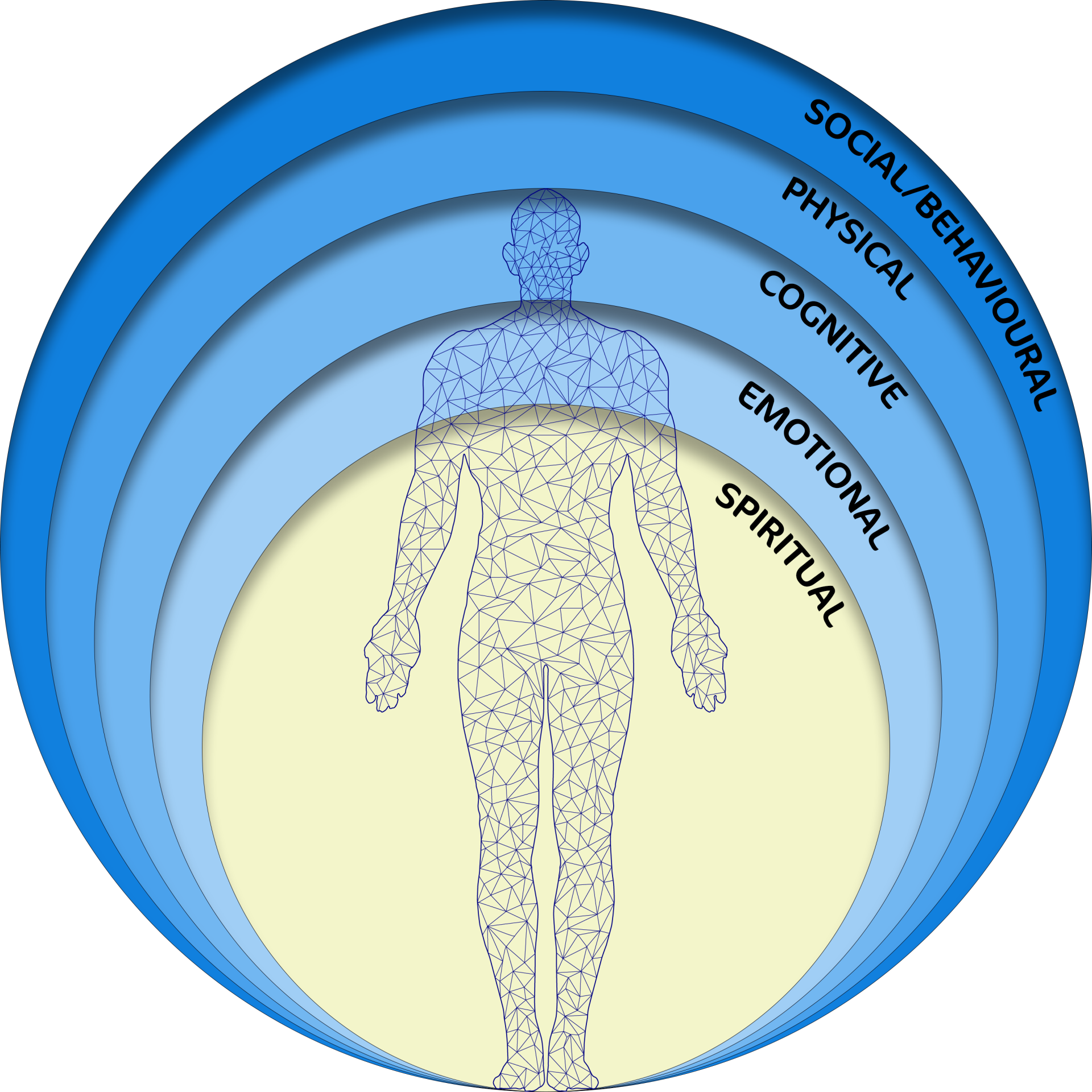Stop Suicidal Thoughts: Resolve Your Past Traumas and Build an Unshakable New You
Using the FLOW Method, you can resolve the past and present issues that are causing you to consider ending your life, and create a new, strong and resilient identity, capable of enjoying life’s challenges and its pleasures.

How FLOW Method Helps with Suicidal Ideations
Addressing Root Causes
The journey towards healing includes addressing the root causes of your suicidal ideations, such as losses, traumas, or deep-seated emotional pain. The FLOW Method will not force you to relive your trauma directly, but instead help you create a personal trauma-resolution tool kit which you will be able to use to create a life 0f joy, balance and fulfillment.
A Future-Oriented Focus
The essence of the FLOW Method is its future-oriented approach. It helps you uncover the ultimate reason for living that transcends the external, material world. This pursuit is about finding meaning in life that isn’t tied to possessions, status, or even immediate surroundings but rooted in something far more profound.
Discovering Your Purpose
Why are you here? It’s a question that echoes in the silence of our darkest moments. The FLOW Method helps you uncover your purpose in this world, so you no longer feel trapped in this world. It’s about taking control of your life’s narrative, understanding your role, and embracing the journey ahead with purpose and clarity.
Busting Myths of ‘Normal’
What society deems ‘normal’ or how life ‘should’ be can often cage us in unrealistic expectations. The FLOW Method challenges these myths, inviting you to explore the vast spectrum of possibilities and encouraging you to define and create your own version of a fulfilling life.
Embracing Your Uniqueness
At the heart of the FLOW Method is a celebration of your uniqueness. It’s about equipping you with tools to build and affirm your identity, recognizing your incredible value as your identity is growing and developing.
Benefits of the FLOW Method: Building Inner Strength and Resilience
- Become Unshakable – You will be able to stand firm, even when life changes or when external support systems falter, feeling secure in your own internal strength.
- Find Meaning and Purpose in Life – Discover a profound sense of direction that makes every day significant and worth living.
- Discover Purpose Behind Life’s Events – Unravel the deeper significance of your experiences, transforming them into stepping stones for growth.
- Build a New Self-Image – Construct a positive and empowering view of yourself, stepping away from negative self-perceptions.
- Grow Your Sense of Self-Worth – Recognize your intrinsic value, understanding that you are deserving of love, respect, and happiness.
- Have Clarity and Vision – Navigate life’s complexities with a clear mind, making decisions from a place of insight and calmness.
- Experience Freedom from Fear – Break free from the chains of anxiety and apprehension, living life fully and fearlessly.
- Feel Balanced and Confident – Attain a stable and assured sense of self, ready to face the world with poise and assurance.
- Experience Self-Love Instead of Self-Harm – Cultivate a nurturing relationship with yourself, cherishing your well-being above all.
Cognitive Behavioral Therapy (CBT)
- Advantages: CBT is widely recognized for its effectiveness in altering negative thought patterns and behaviors associated with suicidal ideations. It offers practical strategies for patients to deal with distressing thoughts in a more constructive manner.
- Disadvantages: CBT requires consistent participation and effort from the patient, which can be challenging for those severely depressed. It may also not address deeper underlying issues or the complexity of one’s emotional experiences fully.
Medication (Antidepressants, Mood Stabilizers)
- Advantages: Medications can quickly reduce symptoms of depression and anxiety, potentially decreasing the immediate risk of suicide. They are particularly beneficial in stabilizing mood swings and offering relief from the intense emotional pain that can lead to suicidal thoughts.
- Disadvantages: Medications come with potential side effects that can sometimes exacerbate distressing feelings or lead to dependency. They also do not provide a long-term solution or address the root causes of one’s suicidal ideations.
Psychoanalysis
- Advantages: This approach dives deep into the unconscious roots of suicidal thoughts, potentially offering profound insights into their origin. It can provide a comprehensive understanding of one’s emotional landscape and unresolved conflicts.
- Disadvantages: Psychoanalysis often requires a significant time and financial commitment. It may be less effective for those seeking immediate relief or who are uncomfortable delving into deep-seated personal issues.
Support Groups
- Advantages: Support groups offer a sense of community and understanding, reducing feelings of isolation by connecting individuals with similar experiences. They provide a platform for sharing coping strategies and receiving peer support.
- Disadvantages: The quality of support can vary, and some may find the group setting less conducive to discussing deeply personal or painful experiences. There’s also the risk of comparison, which might exacerbate feelings of inadequacy or hopelessness for some.
Suicide Hotlines
- Advantages: Suicide hotlines provide immediate, anonymous support for individuals in crisis, offering a lifeline to those who feel they have nowhere else to turn. They can de-escalate a crisis situation by providing emotional support and practical advice on coping strategies.
- Disadvantages: The effectiveness of the support can vary depending on the individual counselor’s expertise and the caller’s willingness to engage. Additionally, hotlines offer short-term relief and are not a substitute for long-term therapeutic support or intervention.
Professional Counseling Intervention
- Advantages: Direct conversations with qualified professionals allow for an accurate assessment of suicide risk and the opportunity to develop a tailored intervention plan. This approach can help in identifying underlying issues contributing to suicidal ideations and establishing a connection with ongoing support.
- Disadvantages: Some individuals may find it challenging to open up or may not be truthful due to fear of stigma or consequences, potentially leading to an underestimation of risk. Moreover, the availability of professionals and immediate access can be limited due to logistical or financial barriers.
Hospitalization and Suicide Watch
- Advantages: In cases of an immediate threat to life, hospitalization can provide a safe environment to prevent an individual from harming themselves. It allows for close monitoring and the administration of necessary medical or psychiatric treatment in a controlled setting.
- Disadvantages: Hospitalization can be a traumatic experience for some, feeling like a loss of autonomy or a punitive measure. The transition back to everyday life post-hospitalization can be challenging without adequate follow-up care and support.
Compare the FLOW Method to Current Model of Suicide Prevention:
Suicide Intervention Vs True Prevention
The current model of suicide prevention predominantly revolves around intervention. This typically involves initial contact by a counselor or a friend who recognizes warning signs, followed by direct questioning. If the assessment, which includes evaluating risk factors and potential triggers, suggests an immediate danger to a person’s life, safety planning begins.
Contrastingly, the FLOW Method adopts a approach centered on actual prevention rather than mere intervention. Recognizing that potentially traumatic events are a common aspect of human experience, the FLOW Method emphasizes on equipping you with tools to resolve traumas, present, past and future. This proactive strategy aims to equip individuals with powerful means making them capable of withstanding life’s adversities without resorting to suicide.
A Long-Term Solution Vs. Short-Term Relief
The FLOW Method stands out by directly addressing the root cause of suicidal ideations, offering not just a coping mechanism but a pathway to genuine healing and resilience. Unlike temporary fixes like medication or emergency interventions, the FLOW Method focuses on building your ‘toolbox’ of trauma-resolution tool. This array of tools empowers you to face life’s difficulties with strength and hope, eliminating suicidal ideations.
Using the Tools You Have Vs Fixing What’s ‘Wrong’
While some therapies, like CBT for example, require active participation and a willingness to change thought and behavior patterns— something deeply challenging for someone with severe depression and suicidal thoughts, the FLOW Method invites you to use your current thought patterns instead of changing them.
Healing Your Trauma Vs. Reliving It
While some therapies, like psychoanalysis, can take months to years, and may painfully delve into past traumas, potentially exacerbating the desire to escape by committing suicide, the FLOW Method offers you a self-reliant way to resolve your traumas without directly reliving them or getting retraumatized.
More About FLOW Method for Suicidal Ideations
Addressing Suicidal Ideations and Beyond
The FLOW Method was developed to help individuals experiencing suicidal ideations, alongside other mental health challenges such as depression, anxiety, anger, PTSD, and more. Understanding that these issues often do not exist in isolation, the FLOW Method approaches healing by addressing the root causes of present issues – life’s traumatic events. This comprehensive approach ensures that underlying factors contributing to suicidal thoughts are fully explored and addressed, offering a path towards genuine recovery.
Comprehensive Method
At its core, the FLOW Method stands as the only truly comprehensive approach that encompasses all five levels of human existence: physical, emotional, cognitive, social, and spiritual. Recognizing the deep interconnection and continuous influence these levels have on one another, the FLOW Method emphasizes that true healing and understanding cannot be achieved by focusing on just one aspect. Including the often-neglected spiritual level is crucial, as it encompasses our search for meaning and purpose.
Spiritual Level and Suicidal Ideations
Suicidal ideations often arise from crises in the spiritual level—our realm of meaning and life’s purpose. Questions like “Who am I?”, “What is my purpose?”, and “Why am I suffering?” are pivotal inquiries that can only be addressed at this level. The FLOW Method dives deep into these existential questions, helping you develop the tools to use on your path forward.
Identity Exploration
Central to the FLOW Method is the journey of identity exploration. Your identity, unique and unmatched by anyone else’s, is viewed as an evolving entity rather than a static definition. This process of discovery is essential for answering the pressing question of what your role in this world is, beginning with the foundational inquiry: “Who am I?”
7-Week Group Course
Your journey begins with a 7-week group course where you, together with other 10-12 participants will work on expanding your levels, building your trauma-resolution tools and practicing the techniques of the method in a safe and supportive environment. Your instructor will guide you through helpful exercises and 'case-study' type of scenarios where you can practice using the skills you've learned before applying them to your own life.
Embracing Your New Tools: Transforming Your Life
After completing the 7-week group course, you are now equipped with the personal trauma-resolution tools you've developed and the techniques you've learned. Now, it's time to apply these tools to resolve your past traumas, one by one, using the FLOW Method. With each trauma you address, you will start to feel better and experience the transformative benefits of the method. Your journey to freedom has just begun, and you will continue to grow and heal, gaining strength and resilience with each step.
Teaching Opportunities
If you're inspired by your transformation and wish to help others, there's an opportunity to become an FLOW Instructor. This allows you to share the powerful impact of the FLOW Method and assist many others who are struggling with mental health issues.
Frequently Asked Questions about FLOW for Suicidal Ideations
1. I've recently lost someone very dear to me, and I feel like I don't want to live anymore. How can the FLOW Method help me?
Losing someone dear to you is profoundly hard. It’s possibly one of the hardest experiences anyone can go through, feeling so deeply painful and, at times, seemingly pointless. It’s entirely normal, during such periods of intense grief, to find yourself contemplating death. This reaction is not just a response to loss but a significant, albeit painful, nudge towards deeper existential exploration. These moments are designed to draw us away from the purely material aspects of life and encourage us to delve into the spiritual realm, prompting us to ask those deep, often avoided questions about existence.
These experiences challenge us to consider such deep questions as ‘What is the purpose of our existence in this world?’, ‘What are we here to do?’, and ‘Why do some of us leave while others stay?’ These are not easy questions, and the answers are not readily available, especially when you are in the depths of sorrow.
However, the FLOW Method is designed to guide you through this process of inquiry, helping you to find your own answers to these profound questions. It aids you in discovering a reason to live that is deeply personal and meaningful to you. Through the FLOW Method, you can find a purpose so compelling that it motivates you to continue living and experiencing what life has to offer, even in the face of unbearable loss. This journey is about building an inner strength that becomes unshakeable, regardless of the external circumstances. It’s about finding meaning in the continuation of your own life, understanding your unique self and how your experiences, even the most painful ones, contribute to your development.2. My childhood was filled with experiences that still haunt me to this day, contributing to my suicidal thoughts. How does the FLOW Method address these deep-seated issues?
The pain stemming from traumatic experiences during childhood is profound and complex, deeply etched into the fabric of your being. These experiences are particularly challenging because, at their core, they seem senseless—why would an innocent child be subjected to such pain? It’s entirely understandable and normal for these memories to continue affecting you into adulthood. Comparing your life to others may lead to feelings that your own didn’t “start right,” casting a shadow over your perception of your life’s value and meaning.
The FLOW Method recognizes the depth of this pain and the impact it has on your sense of self and your view of life. It doesn’t dismiss these experiences or simply look to ‘fix’ them. Instead, the FLOW Method seeks to transform your understanding of these early life events, guiding you to explore not just the “why” in the sense of cause, but the “why” in terms of purpose. This perspective shift is pivotal. It’s about seeing the larger picture of life, acknowledging that even the most harrowing experiences contribute to who we are and can lead us to our ultimate purpose.
Using the tools you obtain through the FLOW Method, you will be able to uncover the purpose behind those early events, a purpose that doesn’t minimize the pain but empowers you to transcend it. This journey involves looking at the vast canvas of life, where every experience, no matter how painful, has a place and a role. The FLOW Method will guide you in this exploration, helping you to see that your life, particularly because of what you’ve endured, holds immense value.
Understanding the purpose behind your experiences can transform how you view your life and yourself. You will learn to see that life is indeed worth living, and more so, your life is especially precious. You’ve weathered storms and survived, and in that survival, there’s an inherent strength and purpose waiting to be discovered. The FLOW Method is here to equip you with tools necessary to navigate this discovery, ensuring that the past doesn’t define your future but enriches it, guiding you toward a life filled with meaning, purpose, and joy.3. I'm constantly battling depression and the feeling that life is just too hard and pointless. Can FLOW Method provide me with a reason to keep going?
It’s true, life is hard, and the pressure to find happiness can sometimes feel overwhelming. Our culture and society often propagate the idea that life should be easy and filled with unending joy. This notion of happiness, which was scarcely a focus several centuries ago, has become a dominant force in our lives, primarily because it’s a powerful selling point in our consumer-driven society. “Buy X and you will be happy,” the ads say, but this formula, while effective for marketing, can indeed be damaging to our psyche.
Real life, with its challenges and complexities, is far from the simplified version of happiness sold to us. What is, however, much more attainable is feeling content. Alongside contentment, inner peace and balance are states of being that can significantly enrich our life. These states have become increasingly rare as anxiety has grown pervasive in our modern world.
The FLOW Method understands these challenges and offers a way forward that doesn’t depend on the elusive pursuit of happiness. Instead, it guides you towards a life filled with purpose, a full spectrum of emotions, and the genuine positive experiences of joy, motivation, and contentment. Using the tools and skills the FLOW Method equips you with, you’ll learn to navigate life’s difficulties with resilience, finding value and meaning in your experiences.4. I've tried numerous therapies and medications to deal with my suicidal ideations, but nothing has brought lasting relief. What makes the FLOW Method different, and how can it help me?
Feeling like you’ve exhausted all options with therapies and medications without finding lasting relief is a common and incredibly frustrating experience. Many people find themselves in this situation, discovering that while medication can offer temporary relief of the symptoms, it primarily addresses the physical level of your being. It’s a critical support for many, yet not a solution.
Therapies, for their part, delve deeper. Cognitive Behavioral Therapy (CBT) works on your cognitive and behavioral levels, offering tools for managing thoughts and actions, while psychoanalysis seeks to untangle your emotional world. Each of these approaches provides valuable insights and relief, yet they too are incomplete. That’s because they overlook a crucial aspect of our existence – the spiritual or innermost part of ourselves. This central part, whether you refer to it as spirit, energy, light, soul, or consciousness, is essential to our overall well-being.
This aspect is where the FLOW Method sets itself apart. It doesn’t ignore this spiritual dimension; instead, it actively incorporates it into the healing process. Importantly, the FLOW Method does not equate spirituality with religion. It maintains a clear stance that spirituality is a personal journey and cautions against any form of blind belief or disbelief. Rooted in the principles of scientific inquiry, the FLOW Method applies a rigorous, open-minded approach to exploring spirituality and its role in our lives.
By addressing the entirety of your being, the FLOW Method offers a path to discovering the answers to profound questions that traditional therapy might shy away from, such as ‘What is the purpose of my existence in this world?’ It guides you towards understanding why your life is valuable and why continuing to live, even amidst tremendous hardship, is profoundly important. The FLOW Method helps illuminate your unique purpose, offering a compelling reason to embrace life with a renewed sense of hope and direction.







